CATEGORIES
Categorías
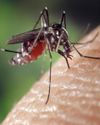
An insight into Chandipura virus in India
Recently lot of news regarding disease due to Chandipura virus has emerged in various newspapers/magazines. After reading the reports published it seems that thing is still brewing in the natures nest and it could affect mankind.
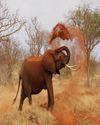
Why elephants never forget?
An elephant has a very large brain for its size and the 'temporal lobe' region responsible for memory is more developed with a greater number of folds - this results in powerful abilities to 'download' important survival data such as where to find food and water, and who is friend or foe.
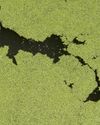
Use of Algae for Wastewater Treatment Containing Heavy Metals
Wastewater treatment is a critical environmental issue particularly when it comes to the removal of heavy metals.
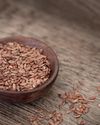
Nano priming Seeds: A Small Innovation Sparkling Big Advances in Germination
Nanopriming is an emerging agricultural technique where the seeds are treated with nanoparticles to improve their germination, growth, and overall performance.
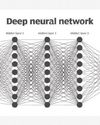
Nobel Laureates in Physics 2024: Revolutionizing AlThe Physics Foundations Behind Machine Learning
This year's two Nobel Laureates in Physics have used tools from physics to develop methods that are the foundation of today's powerful machine learning.
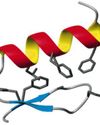
Revolutionizing Biology: The 2024 Nobel Prize in Chemistry Celebrates Breakthroughs in Protein Design and Structure Prediction
The Nobel Prize in Chemistry 2024 is about proteins, life's ingenious chemical tools.
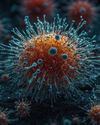
New findings on animal viruses with potential to infect humans
Scientists investigating animal viruses with potential to infect humans have identified a critical protein that could enable spillover of a family of organisms called arteriviruses.

Father-Daughter Team Decodes Mars' Alien Signal
There is no definitive answer to whether aliens exist, but there is a lot of work being done to find out:
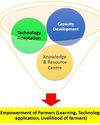
Krishi Vigyan Kendras: Working for Farmer's Welfare
Krishi Vigyan Kendras (Farm Science Centres) are the District level institution serving as an agriculture knowledge resource & capacity development centre which plays indispensable role in front line extension regarding agriculture system in scientific way.

Sixth generation Computer: The future computing technology
We are in a transition towards a digital world, where everything will be dealt with in digital format.

Massive Underground Water Reservoir Found on Mars
Scientists have discovered a reservoir of liquid water on Mars deep in the rocky outer crust of the planet.
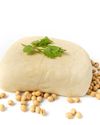
Tofu: The Budget-Friendly Superfood for Vegetarians
Tofu is a plant-based protein-rich food item that can be easily prepared at the household level with limited resources.

Exploring the Marvels of Carbon Quantum Dots: A Leap into the Future of Nanotechnology
In the ever-changing world of nanotechnology, carbon quantum dots (CQDs) have emerged as super tiny but incredibly powerful entities that have massive potential in various fields.
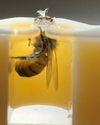
Sniffing Cancer- Honeybee, a potential cancer detector?
Imagine harnessing the super-sense of a honeybee to sniff out lung cancer.
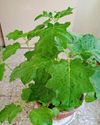
From Ancient Roots to Modern Remedies: The Timeless Value of Turkey Berry in Nature's Healing Arsena
The Timeless Value of Turkey Berry in Traditional and Modern Medicine

Massive biomolecular shifts occur in our 40s and 60s
If it's ever felt like everything in your body is breaking down at once, that might not be your imagination.
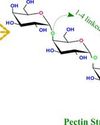
Pectin: An Esteemed Plant-Derived Molecule in the Food Industry
This article provides a concise overview of the significance of pectin, a plant-derived molecule, in the food industry.

Skip the Antibacterial Soap: Use Plain Soap and Water
When you buy soaps and body washes, do you reach for products labeled \"antibacterial\" hoping they'll keep your family safer? Do you think those products will lower your risk of getting sick, spreading germs or being infected? According to the U.S.

Global Rise in Sugar-Sweetened Beverage Consumption Among Youth
A global analysis of dietary habits among children and adolescents across 185 countries has highlighted a notable increase in the consumption of sugar-sweetened beverages.

How does excess sugar affect the developing brain throughout childhood and adolescence
Parents often stress about their kids' sugar intake, but it can be hard to know how much is too much or what to do about it.

Sugar Intake: How Much is Too Much?
Sugars are a type of carbohydrate, and as with other carbohydrates they contain carbon, hydrogen and oxygen molecules. Carbohydrates, are an important part of a healthy diet, as are proteins and fats. Except for dietary fiber, when carbohydrates are consumed they are digested and broken down into glucose, which serves as an energy source for most tissues in the human body. Glucose is a preferred source of energy for red blood cells, the central nervous system, and the brain. Except for dietary fiber, carbohydrates provide approximately 4 calories per gram.

Non-Thermal Plasma Applications in Biomedical and Medicine fields
The fishing and marine industry plays a crucial role in providing food, livelihoods, and economic prosperity worldwide. However, one significant challenge that the industry faces is biofouling - the accumulation of marine organisms on submerged surfaces.

Misbeliefs related to Food, Nutrition and Cancer
There are so many myths about food and nutrition related to cancer and it's difficult to find out the truth. Often the information shared by people and on internet is very confusing. One cannot clarify the fact about the statement.

Scientists Have Grown Diamonds in Just 150 Minutes
Natural diamonds take billions of years to form in the extreme pressures and temperatures deep underground. Synthetic forms can be produced far quicker, but they typically still require some intense squishing for up to several weeks.

In a warming world, climate scientists consider category 6 hurricanes
For more than 50 years, the National Hurricane Center has used the Saffir-Simpson Windscale to communicate the risk of property damage; it labels a hurricane on a scale from Category 1 (wind speeds between 74-95 mph) to Category 5 (wind speeds of 158 mph or greater).

New antibiotic class effective against multidrug-resistant bacteria
Scientists at Uppsala University have discovered a new class of antibiotics with potent activity against multidrug-resistant bacteria, and have shown that it cures bloodstream infections in mice. The new antibiotic class is described in an article in the scientific journal PNAS.

Modeling the origins of life: New evidence for an 'RNA World'
Charles Darwin described evolution as \"descent with modification.\" Genetic information in the form of DNA sequences is copied and passed down from one generation to the next. But this process must also be somewhat flexible, allowing slight variations of genes to arise over time and introduce new traits into the population.

European lawmakers pass world's first major act to regulate AI
The European Union's parliament on Wednesday approved the world's first major set of regulatory ground rules to govern the mediatized artificial intelligence at the forefront of tech investment.

Scientists are making significant progress towards reviving the woolly mammoth
A company aiming to bring extinct animals back from the dead said it has taken an elephant-sized step toward genetically resurrecting the woolly mammoth, a wild if contentious goal to repopulate the Arctic tundra with a missing titan.

Probiotic feed additive boosts growth, health in poultry in place of antibiotics
Antimicrobial resistance is an increasingly serious threat for public health, and the use of anti-microbials in livestock feed has been a major contributing factor in the emergence and spread of antimicrobial resistance to many drugs, according to the U.S. National Institutes of Health.